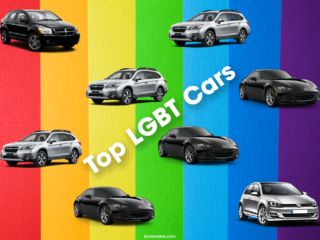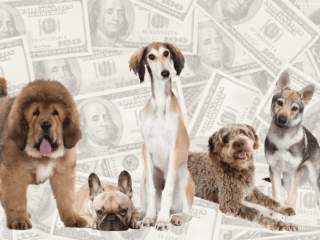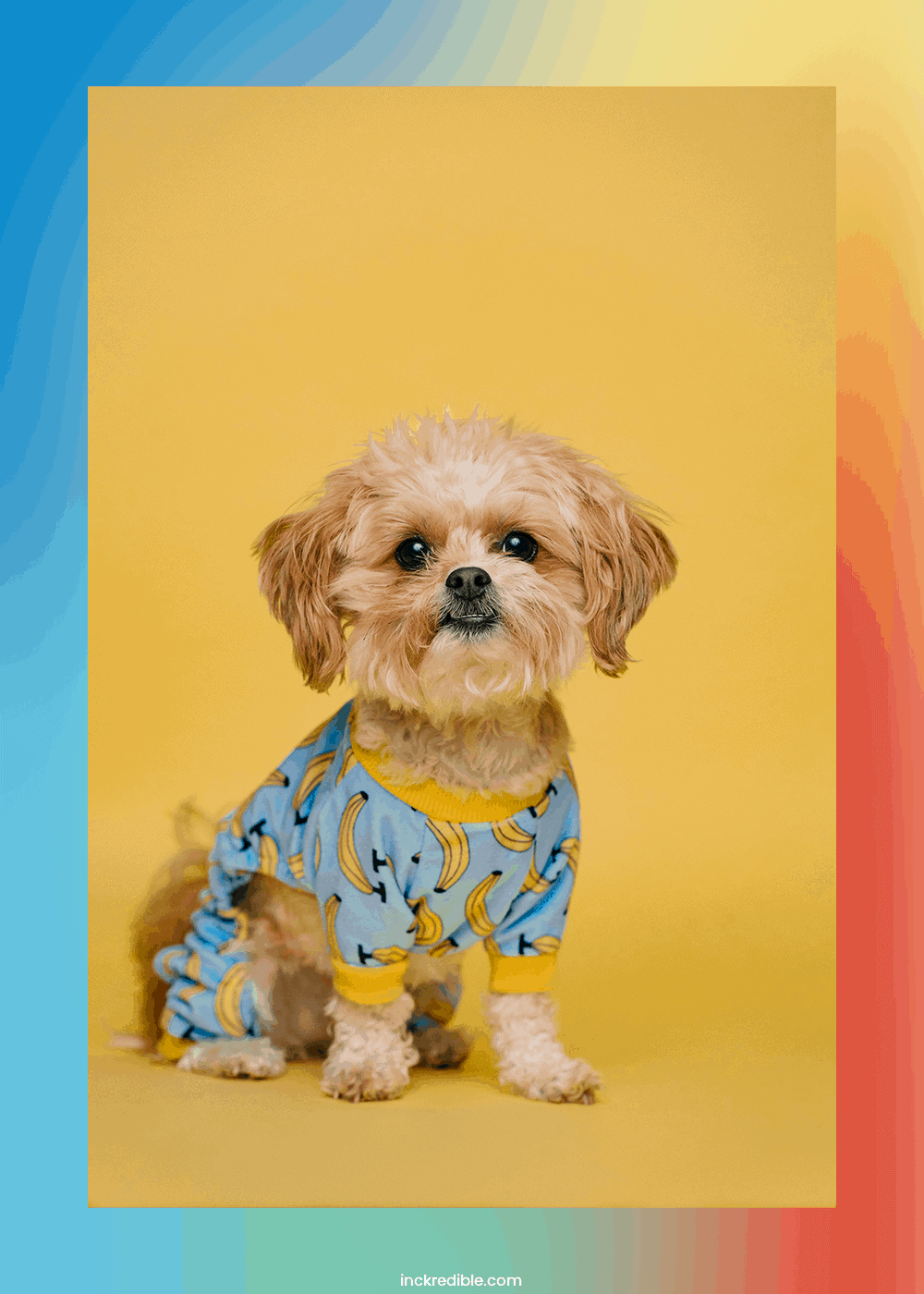
Dogs are indeed man’s best friend, loyal and playful; they’re always going to run to hug you excitedly after a long day, tail wagging and tongue out. We love them, maybe not as much as they love us, and the relationship with your dog, if you nurture it, can be a beautiful thing.
It would be rather unfortunate if any of us were unable to experience something so wonderful. But with humanity and our ever unique and annoyingly varying immune system, we are often prone to various conditions.
For all its good intentions, the immune system tends to act irrationally and react to foreign substances. This reaction is referred to as an allergic reaction. Allergies can be inconvenient and make it difficult to interact with or consume particular objects.
People may be allergic to certain fruits, foods, surfaces, and even animals. With that knowledge, it is safe to assume that people can be allergic to dogs as well. Unfortunately, this means some people cannot experience the joy of owning or even being around dogs of any kind.
So, you want a puppy, but you discover you’re allergic, is there any hope for you? I have good news for you; there are various breeds best suited for people with allergies, known as hypoallergenic dogs.
What does hypoallergenic mean in a dog?
Dogs are cute creatures, domesticated over the years to function as an integral family unit. They’re of various breeds, and for each of these breeds, some unique traits and qualities help differentiate them.
With the available breeds, there is a possibility to create more refined species through cross-breeding. Furthermore, these new breeds made from other breeds are often of higher quality and possess better genetic and physical characteristics.
Generally, cross-breeding aims to select and mix favourable traits of various breeds to make a better specimen. Now we must address the topic of hypoallergenic dogs, which have been bred purposely for the people who are allergic to dogs.
The word hypoallergenic describes things that are most unlikely to cause or trigger allergies. This means that if an object typically causes an allergic reaction, it can be made hypoallergenic and thus free of allergic triggers.
Hypoallergenic dogs have been bred specifically to tend to people who are allergic to dogs. These dogs are the least likely to trigger a reaction and can be in the same space as people who are ordinarily allergic to dogs.
This is excellent news for those who want to own dogs but are allergic to them. You can own the puppy of your dream; find the right breed for you. You must ascertain the best ones for you, depending on the severity of your allergy.
Are hypoallergenic dogs good for allergies?
For people who struggle with animal allergies but desire to own pets, the existence of hypoallergenic pets is a breath of fresh air. It means that these people can have a healthy and enjoyable relationship with their pets without fear of any health risks or discomfort.
Hypoallergenic dogs are perfect for people who have allergic reactions to dogs. They are bred to ensure the safety and wellbeing of their intended owners. Hypoallergenic dogs are not only healthy, but they’re also quite cute as well, bred to have these qualities side by side.
If you have trouble being around dogs or develop hives when you’re near one, you should consider finding out which dog breed is perfect for your unique health condition. It is pretty easy, and with minimal research, you can choose from the vast array of available options.
The relationship between a pet dog and its owner is lovely. This is due to the years of domestication the dogs have undergone to develop closer bonds with humans. It will be a shame if we are unable to experience this joy.
Well then, for as many who were reading this with their hearts heavy, there’s hope—no need to be distraught at the possibility of missing out on owning a dog. So there you have it; if you were apprehensive about getting to experience your slice of heaven with a puppy, I’m sure you now want at least one of the best hypoallergenic dogs. It’ll save you the discomfort of having allergic reactions every time your pet is trying to play with you or spend quality time with you.
What breed of dogs is best for allergy sufferers?
Although there is no actual scientific supporting the theory that specific dogs are ideally suited for people living with the condition, some breeds will be least likely to trigger an allergic reaction. These are also considered hypoallergenic.
Hypoallergenic dogs have somewhat of a reputation amongst dog lovers and people with dog-specific allergies. The expected reaction when there is a problem and there presents a solution to it is an obsession with this so-called fix. As a result, there are countless articles written touting certain specific dogs as ultimately hypoallergenic.
If you have allergies related to dogs and you are curious about which breeds are hypoallergenic, I’d advise that you paid avid attention to this piece. Here, you’ll discover the suitable breeds for you and just why they are best for you and your health.
I’m sure your interest is piqued by now, and you are curious as to which breeds are suitable for you and will be least problematic for your allergies. Here are a few breeds that are perfect for people with allergies;
- Bichon Frise
- Miniature Schnauzer
- Affenpinscher
- Afghan Hound
- American Hairless Terrier
- Basenji
- Poodle
- Yorkshire Terrier
- Shih Tzu
- Portuguese Water Dog
As I mentioned earlier, there is an ample number of choices for you if you wish to venture into purchasing a cute hypoallergenic dog for your home. Perhaps it’s not you that has the allergies, and it might be your child; you have the luxury of picking adorable pups for your little ones without jeopardizing their health and yours.
Hypoallergenic Dogs Breeds
1. Bichon Frise
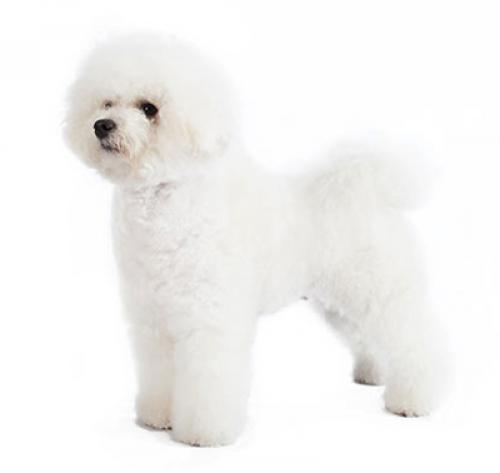
The Bichon Frisé is a small hypoallergenic dog for anyone with allergies. This famous dog is a bundle of personality and cuteness with its famous white wool-like coat and appealing big dark eyes.
If you’re just starting a family and live in an apartment, then the Bichon is a perfect dog for you as it’s friendly, and adapts readily. A regular bichon is a tad under a foot tall at the shoulder, and has a majestic white hypoallergenic coat that is plush, velvety, and non-shedding.
2. Miniature Schnauzer
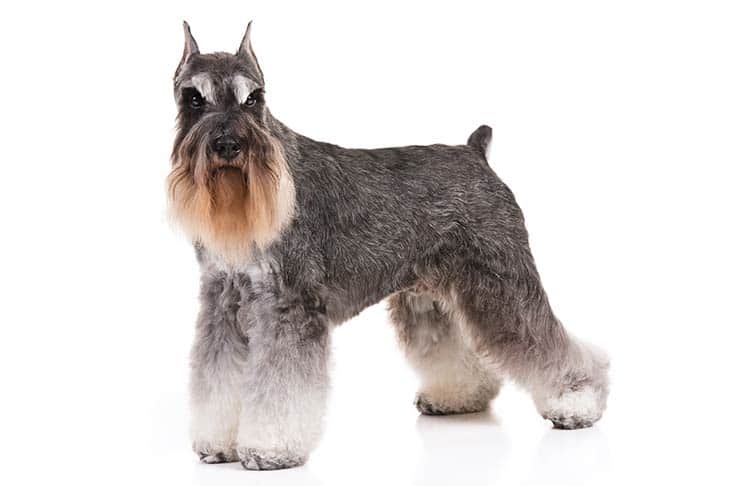
Miniature Schnauzers are a very hypoallergenic breed because they rarely shed, making them very safe for people with dog allergies. Schnauzers possess a short, double fur coat: the hard and wiry outer coat and a complementary softer undercoat.
They might shed little, but the hair gets tangled in the harder outer coat. This means it is retained instead of being shed.
The owners’ responsibility is to make sure they groom their pets, remove these excess hairs, and keep the coat healthy and clean. There is a chance that there will be slight excess around the house, but it will be limited with regular grooming.
3. Affenpinscher
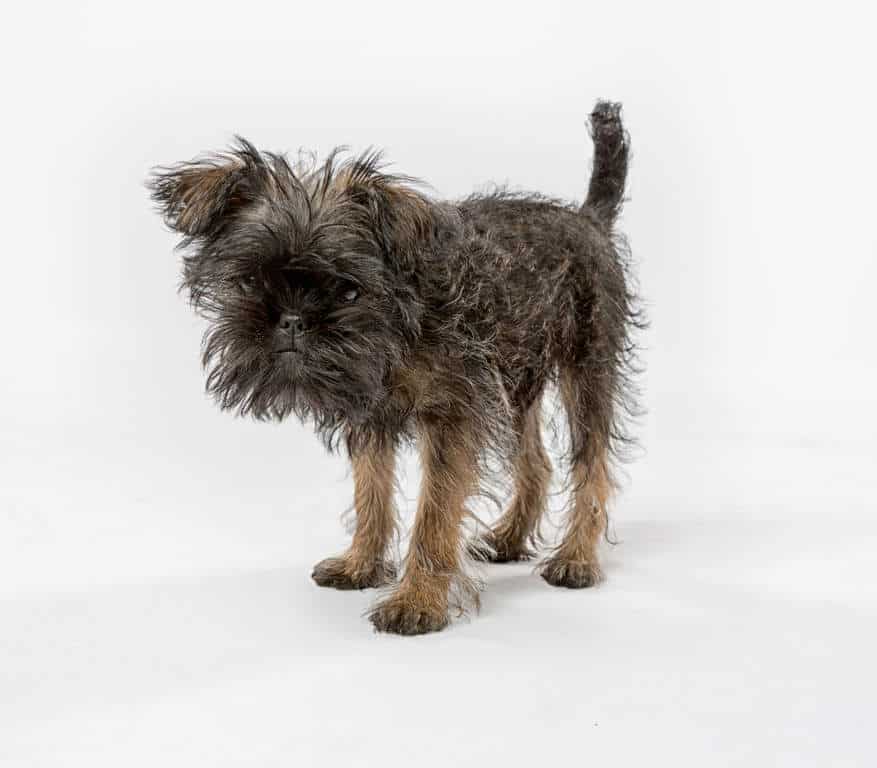
Affenpinscher is a pup with a boisterous personality, and it barely sheds any fur, which is excellent for allergies and your furniture. Another plus is that its coat grows very slowly, which means it won’t need to shed so much. It also has an outer coat that acts as a net.
This net feature helps retain dander—dead skin cells that trigger an allergic reaction. However, it would be best if you brushed off these dead cells in your own spare time to keep the fur clean and healthy.
Another thing apart from hair and dead skin cells that triggers an allergic reaction is slobber; the Affenpinscher does not drool, making it an all-around excellent choice for a hypoallergenic dog.
4. Afghan Hound
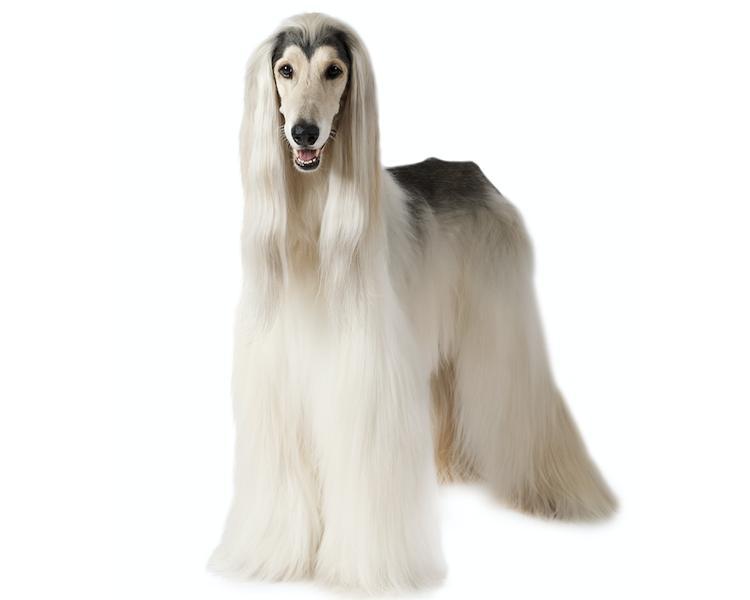
The Afghan hound is an exquisite and dignified breed with a distinct and beautiful long silky coat and independent personality.
Their unique and eye-catching hair is confused as a deterrent for prospective owners because of the assumption that that much hair will trigger allergies. But in truth, they’re very hypoallergenic.
With that much hair, they surprisingly shed at all; they shed as all creatures with hair, but it so minimal and quickly replaced. This shedding happens every spring and fall.
The Afghan does not have a thick undercoat which would usually exacerbate allergy issues by trapping dander. Any excess dead skin gets caught in the long luxurious hair to be brushed off during grooming.
The afghan also rarely drools, which is a great plus.
5. American Hairless Terrier
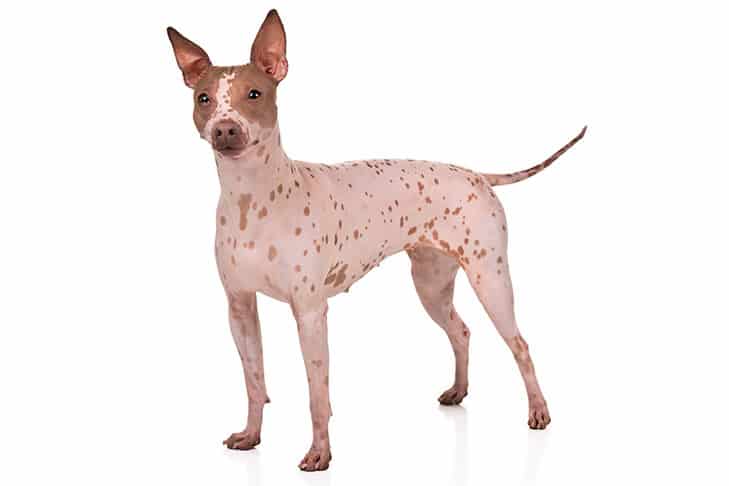
The American Hairless Terrier is a relatively young breed, born in 1972. Their ancestors are the typically coated Rat Terrier parents who were adept in hunting rodents and rats.
According to the name, this breed has a non-shedding coat. Thus it does not present any threats or allergy triggers to you or your family. The American Hairless Terrier is a fantastic choice for families with kids. They’re very spirited, intelligent, and are easily trained.
6. Basenji
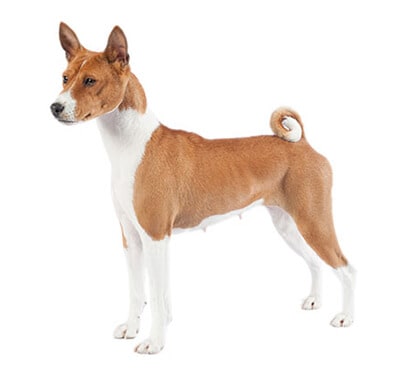
The Basenji is an ideal hypoallergenic dog, just like the Schnauzer since it only sheds its dead skin once a month, reducing the chance of triggering allergies to the barest minimum.
Asides from the fact that it barely lets off any dander or doing so once a month, it also doesn’t shed, and that’s not all; it also is an independent breed. This independence means it keeps itself clean by self-grooming and doesn’t drool.
Its coat maintenance isn’t so high; all it requires is a regular “rub down” to keep the coat free of any sheddings and your home free of hair.
7. Poodle
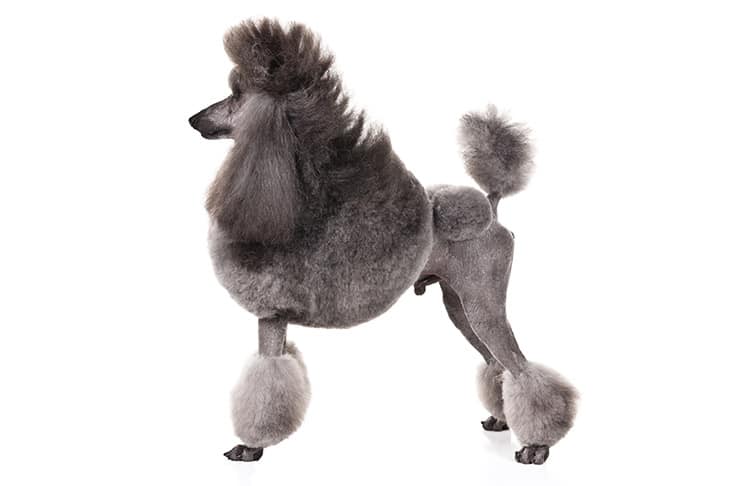
The Poodle is yet another popular hypoallergenic breed that is also considered very loyal and intelligent. Their coat is wool-like and hypoallergenic, making it a wise choice for families with dog allergies.
This wool-like coat has low dander frequency and has minimal shedding. This keeps your home free of any residual triggers or allergens for an allergic reaction. The Poodle isn’t only healthy and beautiful; it also is fun and very faithful, making it a perfect companion for any intending owner.
They come in various sizes ranging from the tiny “Toy Poodles” and the small “Miniature Poodles” to the large, more standard Poodle. The sizes do not influence the shedding or dander, so you are assured of a healthy experience, whichever you choose.
8. Yorkshire Terrier
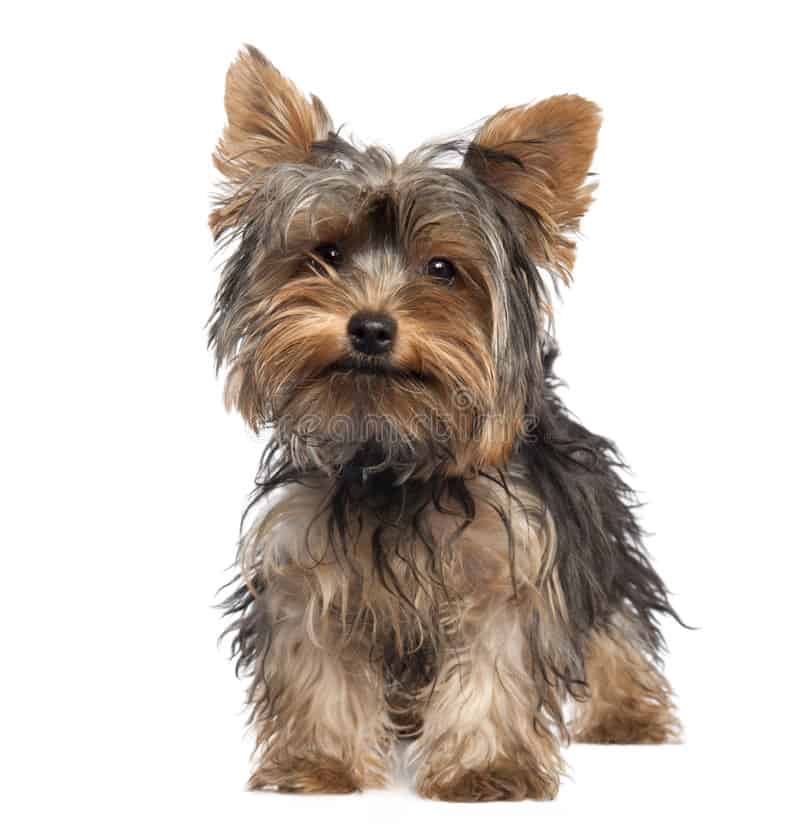
The Yorkshire Terrier, or Yorkie, has fine, human-like hair instead of other breeds’ regular fur. This quality it possesses means it doesn’t shed seasonally and thus produces less excess hair that would have triggered an allergic reaction.
This should be great news for owners of Yorkie or those who are interested in getting one.
As if it didn’t already tick all the boxes for the ideal hypoallergenic dog, the Yorkie also doesn’t shed its dead skin cells on surfaces. But it is advisable to groom its coat to ensure there is reduced possibility for dander or hair on furniture.
9. Shih Tzu
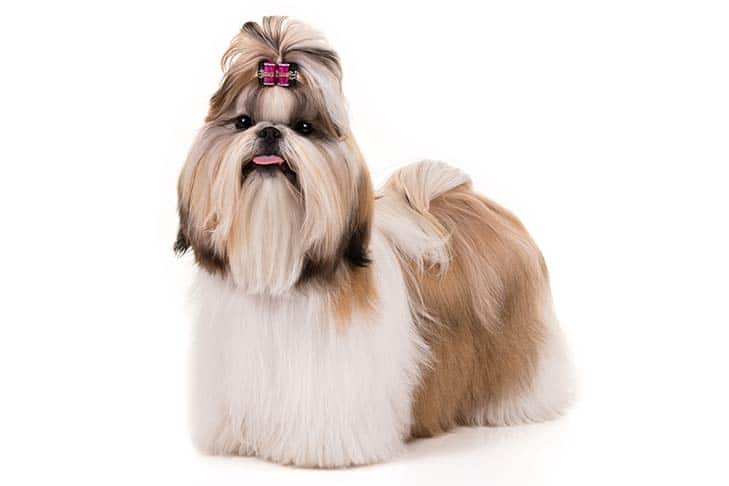
No dog is indeed 100% hypoallergenic, but with the Shih Tzu breed, you are assured of a high percentage of cleanliness. Humans usually are more allergic to dander than they are to hair or fur, so it would make sense that your dog of choice does not shed dander.
They manage not to shed dander because they also possess a hair-like coat instead of other dogs’ regular fur coats. This hair-like coat helps to prevent any dander from depositing on surfaces. However, it is always important to groom and brush the hair for added assurance.
10. Portuguese Water Dog
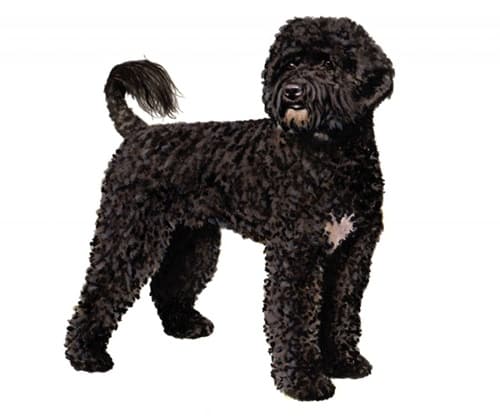
Like some of the hypoallergenic dog breeds listed above, the Portuguese Water Dog has a single coat meaning they rarely shed excess hair. In addition, because they have a single coat, they grow continuously instead of being replaced like other breeds’ regular fur structure.
The Portuguese Water Dog also sheds minimal dander, ideal for a family with known dog allergies.
11. Scottish Terrier
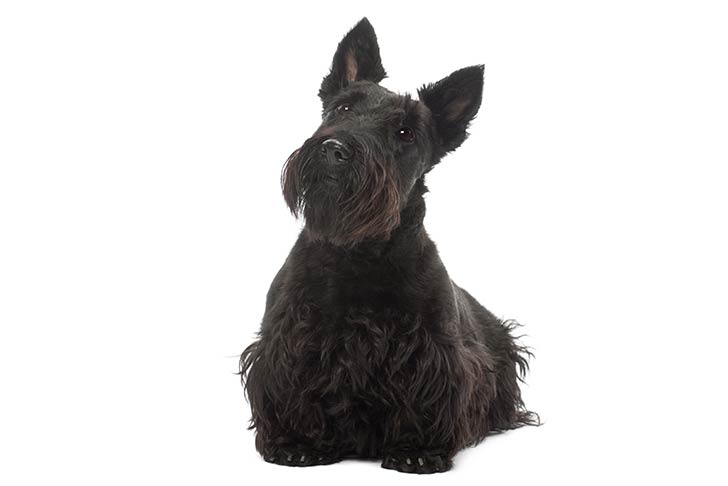
The Scottish Terrier is considered hypoallergenic because, unlike most, it barely sheds and does not drool.
12. Chinese Crested
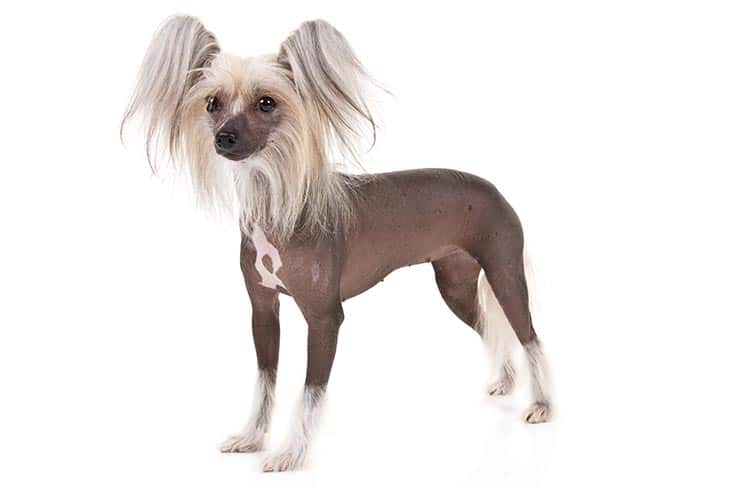
The Chinese Crested does not shed at all, rarely drools, and has low dander, making it very safe for those with allergies.
13. Coton de Tulear
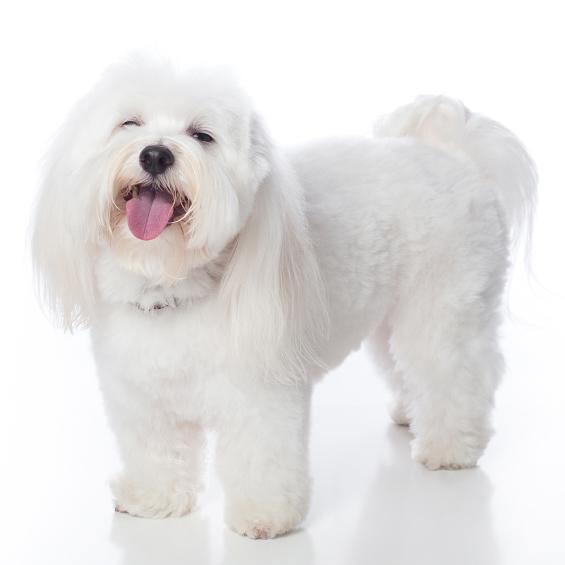
The Cotton de Tulear is a slobber-free, dander-free, and shedding-free breed, making it very hypoallergenic.
14. Irish Water Spaniel
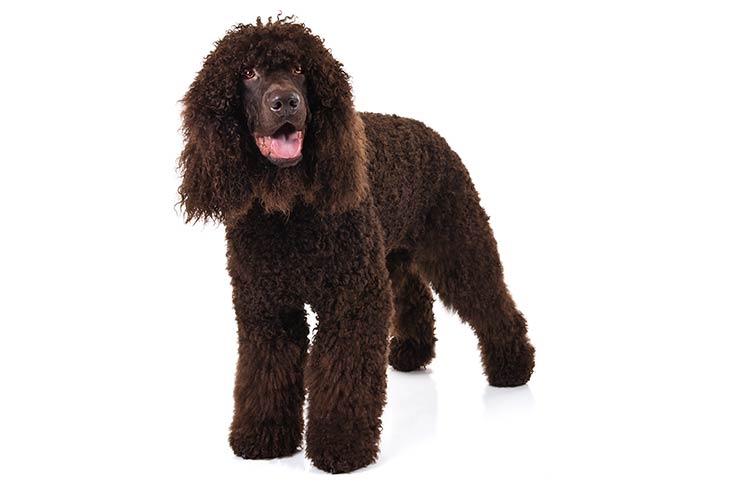
The Irish Water Spaniel has a double-layered coat meaning it is dander-free and it doesn’t shed and thus has only a slight possibility for causing allergic reactions.
15. Peruvian Inca Orchid
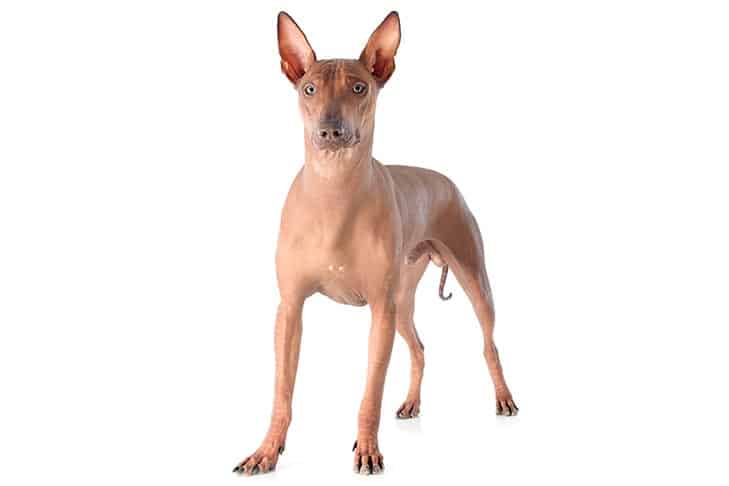
The Peruvian Inca Orchid is a hairless breed; thus, the chance of shedding and dander is meagre, making it a hypoallergenic dog.
16. Bedlington Terrier
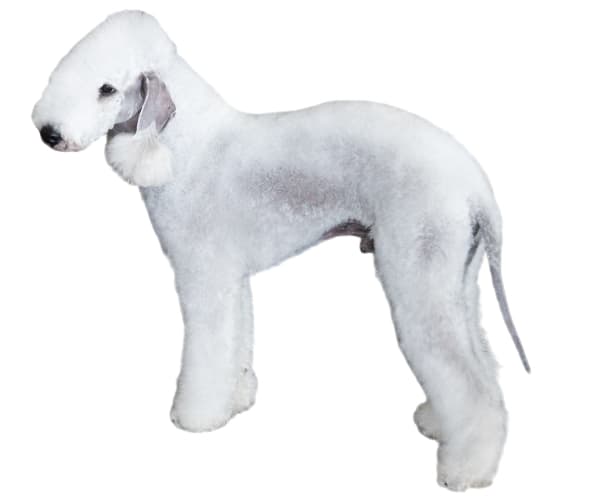
The Bedlington Terrier is a hypoallergenic breed with unique features like its tight-curled woolly coat that ensures it barely sheds at all.
17. Soft Coated Wheaten Terrier
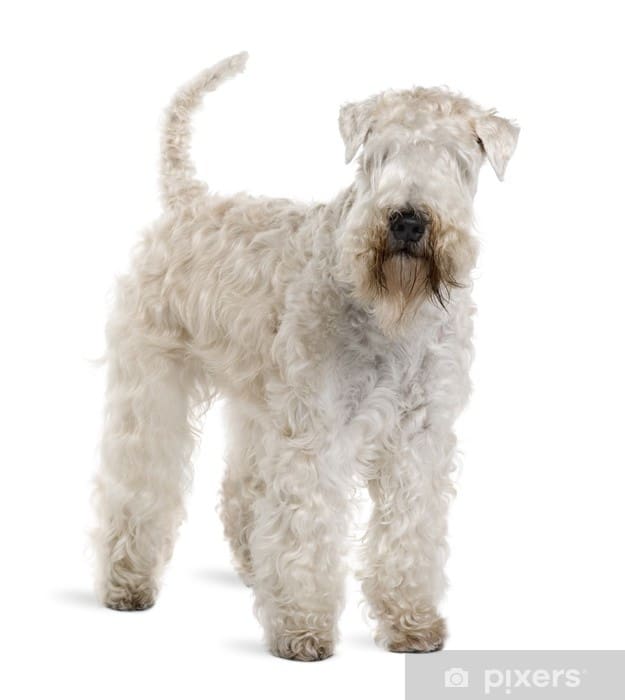
Soft-Coated Wheaton Terriers have a luxuriously thick woolly coat which means there’s no chance of shedding or dander, making them a very hypoallergenic dog suitable for people with allergies.
18. Wire Fox Terrier
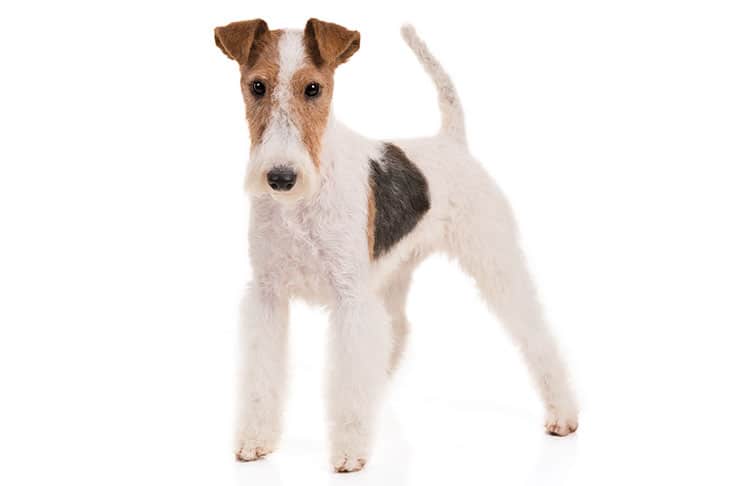
This breed is a particularly hypoallergenic one because of the nature of its coat; it only needs to shed a little. With regular grooming, however, you can ensure it’s 100% hypoallergenic.
19. Kerry Blue Terrier
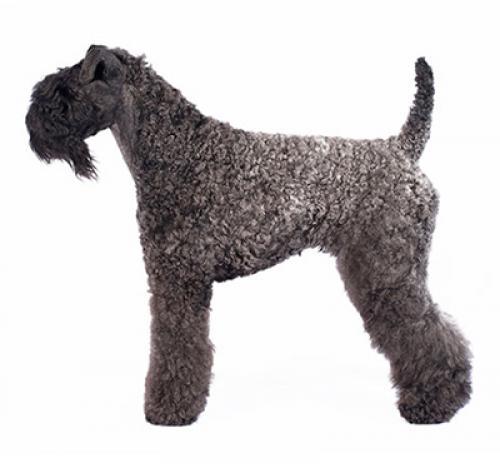
Kerry Blue Terriers seldom shed, which reduces the chances of any allergen in and around your living space, making it a perfect hypoallergenic dog for you.
20. Lhasa Apso
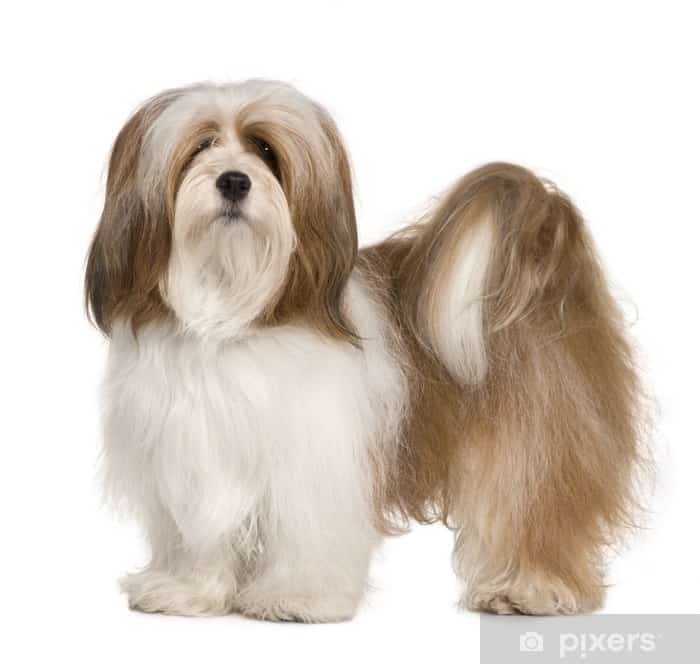
Like many hypoallergenic dogs, the Lhaha Apso rarely sheds or drools, which reduces the chances of triggering an allergic reaction.
CONCLUSION
There is a high chance that you might be allergic to dogs, which will prevent you from enjoying the experience of owning and loving a beloved companion. Thus, several breeds have been made to remedy the situation and avoid this unfortunate outcome.
The hypoallergenic dog is a dream come true for people with dog allergies but who love to own dogs. However, before you make the bold step to purchase one, make sure you consult with an expert to identify the best breed for you and your family that has the least amount of antigen.
